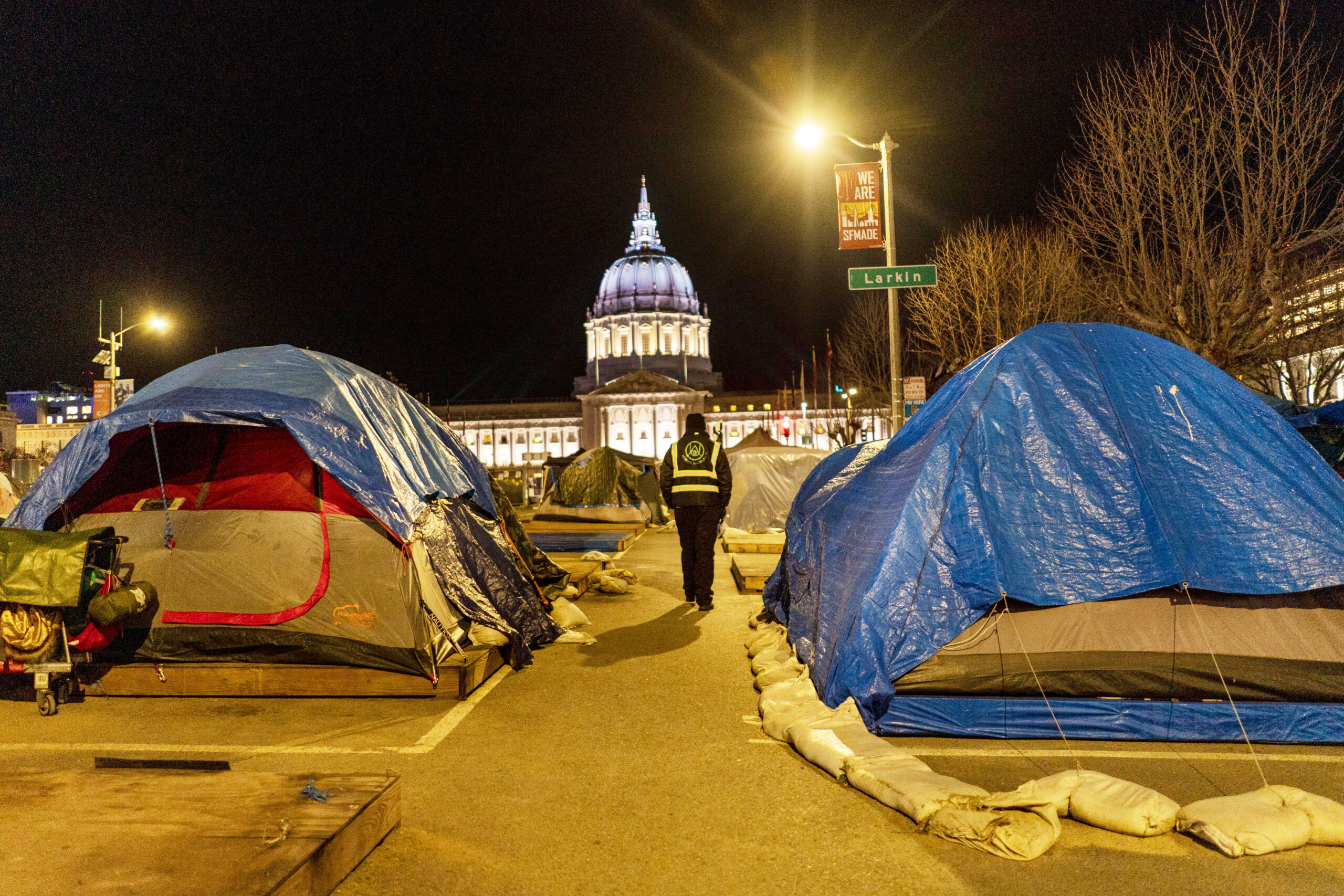The homelessness and drug addiction crisis have long cast a shadow over San Francisco’s streets, increasingly cutting into the budget as city leaders flounder to find solutions.
The city budgeted $667.8 million toward homeless services and $75 million for drug health and treatment programs during the 2022 fiscal year. And while many of those contracts were signed during previous budget cycles, the city also made several key additions to its continuum of services in the past year.
Yet, the humanitarian catastrophe on the city’s streets continues to be a top concern for residents, leaving many to wonder where all the money is going.
The city relies heavily on nonprofits to carry out essential functions of local government, budgeting $1.4 billion toward nonprofits this year. So, The Standard explored some of the biggest nonprofit contracts that were signed to help address homelessness and drug addiction in fiscal year 2022.
Urban Alchemy — $34 Million
Urban Alchemy is a nonprofit that employs many of the reflective-vest-wearing street ambassadors who can be seen patrolling the streets of the Tenderloin.
Many residents in the neighborhood have commended Urban Alchemy for playing a pivotal role in clearing walkways and deterring drug dealing in certain areas during the day.
But critics contend that the nonprofit has become an unlicensed security force, which only temporarily relieves some of the city’s ills. This year, two of the company’s patrol officers were victims of gun violence while on patrol, intensifying the line of questioning around their role.
And as the nonprofit has seen success in temporarily deterring problematic behavior, the remaining blocks have proven much more dangerous for the company’s unarmed workforce to handle.
This past fiscal year, the city granted Urban Alchemy an $18.7 million contract to run a homeless shelter in Lower Nob Hill as well a $5 million contract to manage a homeless cabin site in SoMa.
The nonprofit was also granted contracts to manage two vehicle campsites that total $5.5 million, as well as a $2 million deal to provide security at the SF Public Library’s main branch. Urban Alchemy was also one of many nonprofits contracted to run the city’s first safe consumption site called the Tenderloin Center, which closed in December, earning $4.9 million for its services there.
Episcopal Community Services — $75 million
Episcopal Community Services operates a number of supportive housing facilities in the city and acquired several contracts this year to continue those programs.
The nonprofit received funding to continue services at the Hotel Diva, the Auburn Hotel and the Henry Hotel. The charity’s programs are home to 1,800 people while also offering mental health and case management services, according to its website.
The city also granted Episcopal Community Services $2.3 million to run a winter shelter and a $9.8 million contract to operate a site that directs people to other social services—called an access point.
HealthRight360 — $11.8 Million
HealthRight360 is the nonprofit that was chiefly in charge of providing overdose prevention services at the city’s first safe consumption site, the Tenderloin Center. The controversial center opened in January 2022 and closed in December.
The nonprofit offers a range of drug health and treatment programs, and has grown over the years by sometimes consuming other nonprofits. Earlier this year, HealthRight360 stepped in to take over two programs for the financially troubled nonprofit Baker Places.
A recent city audit had “no findings” in its report of HealthRight360, despite finding that many other local charities were not living up to their contracts.
But HealthRight360’s role in running the Tenderloin Center as a safe consumption site—initially as a secret—has fueled suspicions about the nonprofit.
Vitka Eisen, HealthRight360’s CEO, recently admitted to The San Francisco Examiner that neither Mayor London Breed’s Office nor the Department of Emergency Management had planned to open the center as a safe consumption site.
“We believed that we couldn’t do the work without it, and we were willing to take the risk to do that because lives were at stake and we believed we needed to do something different,” Eisen told the Examiner.
This year, the city finalized a $9.9 million contract with HealthRight360 to open the city’s first sobering site, where people can safely come down from the effects of hard drugs and find referrals to other social services.
Tenderloin Housing Clinic — $20 million
Tenderloin Housing Clinic, run by CEO Randy Shaw, has long been a prominent provider in the city’s permanent supportive housing stock.
While Shaw has used his personal newspaper to take aim at city leaders and drug dealers—whom he blames for squalor in the Tenderloin neighborhood—an investigation by The San Francisco Chronicle put Shaw between the crosshairs earlier this year, documenting inhumane conditions within some of his properties.
Many of the nonprofit’s frontline workers went on strike this year, asking for a $5 hourly increase to their wages, describing dangerous conditions in the workplace. Mayor London Breed ultimately allocated $15 million as part of this year’s budget to help address the pay inequities.
The city tacked on $20 million in new contracts for Tenderloin Housing Clinic this year, including $3 million in supportive services and $16.8 million for four of the nonprofit’s properties.
Editor’s Note: This story has been updated to add more context about the range of services offered by Episcopal Community Services.
